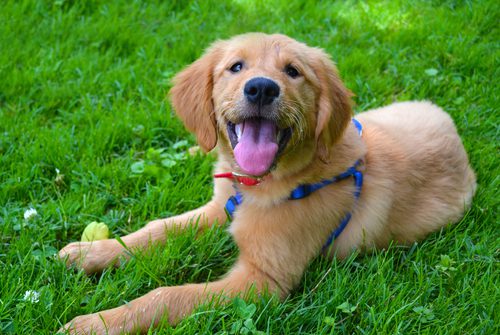
All dogs are different and the key to building our relationship with them is to respect their individuality and to learn to understand their unique personality. Never is this more evident when it comes to training.
Expert dog trainers are now focusing on what’s known as canine cognition, which is how a dog’s mind processes the world around it. Host of It’s Me or the Dog Victoria Stilwell says: “Knowing your dog’s cognitive style will help you understand what drives him, how he learns and what he needs from you to make learning easier. If a dog finds learning difficult or is slow to pick up on a person’s cues, it doesn't necessarily mean he's not smart. Instead, he might learn in a different way from what is usually expected.”
Second that emotion
As well as understanding how your dog learns, recognising their emotional needs is essential too. Dog training expert Kristin Kaldahl advises paying attention to the emotion the dog needs from you when you train and interact with them, as Ignoring it can cause training to fail, and the dog to shut down. She says: “Fearful dogs would need a different emotion from their trainers to enhance their beautiful personalities, which are already muted due to innate fears. With a handler who smiles and makes training happy and fun, the dog can blossom to become what she was intended to be. Each dog must be trained with emotions that will meet the dog's needs to bring out her individual personality.”
Science steps in
To help you really understand what makes your dog tick, there’s even a scientifically-based online tool available. Dognition is the brainchild of Dr Brian Hare, assistant professor of evolutionary anthropology at Duke University in North Carolina, USA. It’s designed to identify the cognitive abilities and key personality traits in individual pet dogs. This involves playing science-based games with your dog (and a human assistant), which are designed to give you a fresh perspective on five key aspects of your dog’s mind:
- Empathy – does your dog read and respond to the emotions of others?
- Communication – does your dog use information from others to learn about the environment?
- Cunning – does your dog use information from others to avoid detection?
- Memory – does your dog store past experiences to make future choices?
- Reasoning – can your dog infer solutions to new problems?
As you play the games you record your dog’s responses, the results of which are sent off and read by the Dognition team. They then evaluate your dog’s abilities, including how your dog thinks and the skills he uses to solve problems. The Profile Report that Dognition provides sets out a detailed breakdown of these results to give you a deeper understanding of how your dog thinks and learns.
There are nine profile types that represent a distinct combination of characteristics that shape your dog’s approach to everyday life.
Which do you think your dog would be?
- Ace (top dog)
- Charmer (canis irresistabilis)
- Socialite (friend to all)
- Expert (problem solver)
- Renaissance Dog (dog of all trades)
- Protodog (pioneer)
- Einstein (the thinker)
- Maverick (lone wolf)
- Stargazer (free spirit)
By identifying more precisely how your dog thinks and learns via this online tool, the idea is that you’ll become more attuned to specific ways to harness the innate power of your dog's particular instincts and skillsets using positive training techniques. Interested? You can find out more about Dognition here
If you found this interesting, you may also like:
Pack leader or perfect partners?: Being a five-star dog owner is all about building a brilliant human/canine bond. Good dog owners set behaviour boundaries, but also provide space in the partnership for a dog to be a dog
The value of reward-based training with your dog: Focusing on and rewarding what your dog can do, rather than what they can’t, makes training a much more positive experience for canines and humans alike
Sources: positively.com, pethelpful.com, dognition.com














